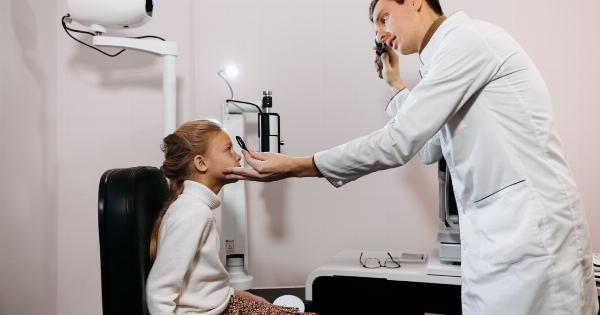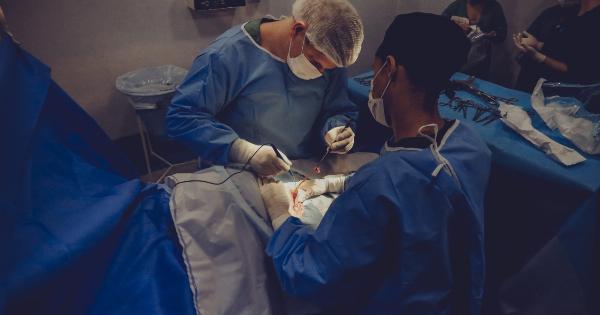Heart surgery is a complex procedure that requires careful monitoring and attention to ensure the patient’s safety and recovery.
While advancements in medical technology have made heart surgeries safer than ever, there are still certain individuals who require closer monitoring post-surgery due to various risk factors and complications. In this article, we will discuss the groups of people who should be closely monitored after heart surgery.
1. Elderly Individuals
Elderly individuals, usually defined as those aged 65 and above, may require a closer monitoring post-heart surgery due to the various age-related factors that affect their recovery.
The aging process can weaken the body’s immune system, making elderly individuals more susceptible to infections and complications after surgery. Additionally, they may have pre-existing conditions such as hypertension, diabetes, or kidney issues that can slow down the recovery process.
2. People with Pre-existing Cardiovascular Conditions
Individuals who have pre-existing cardiovascular conditions, such as coronary artery disease, heart failure, or arrhythmias, should be closely monitored after heart surgery.
These conditions can increase the risk of complications during and after surgery. Monitoring their vital signs, cardiac function, and possible signs of infection or post-operative bleeding is crucial in their recovery process.
3. Patients with Complications During Surgery
In some cases, heart surgeries may encounter complications during the procedure, such as bleeding, infection, or damage to other organs.
Patients who experience such complications should be closely monitored after surgery to ensure timely intervention and appropriate management of these complications to prevent further health issues.
4. Individuals with Impaired Kidney Function
The kidneys play a vital role in filtering waste and excess fluid from the body. Heart surgery can put stress on the kidneys, and individuals with pre-existing impaired kidney function are at a higher risk for post-operative kidney problems.
They should be consistently monitored for any signs of acute kidney injury or worsening of their kidney function.
5. Patients with Lung Disease
People with lung diseases, such as chronic obstructive pulmonary disease (COPD) or asthma, may face additional challenges during the recovery phase after heart surgery.
Close monitoring is essential to identify any signs of respiratory distress or worsening lung function, as these individuals are at a higher risk of developing post-operative pneumonia or other lung complications.
6. Those with Diabetes Mellitus
Diabetes mellitus is a chronic condition that affects how the body processes sugar. Individuals with diabetes have a higher risk of developing infections, delayed wound healing, and other cardiac complications after surgery.
Close monitoring of blood sugar levels, wound healing, and signs of infection is necessary for these patients to ensure proper recovery.
7. Patients with a History of Stroke
Individuals with a previous history of stroke require closer monitoring after heart surgery due to their increased risk of neurological complications.
Post-operative strokes can occur as a result of blood clots, damage to blood vessels, or reduced blood flow to the brain. Continuous monitoring of neurological function and early intervention are crucial in managing these patients.
8. Those with Bleeding Disorders
Patients with bleeding disorders, such as hemophilia or von Willebrand disease, have a higher risk of excessive bleeding and hematoma formation after surgery.
These individuals should be closely monitored for any signs of bleeding or delayed wound healing. Testing for appropriate clotting factors and administering necessary interventions are essential for their post-operative care.
9. People with Mental Health Conditions
Individuals with underlying mental health conditions, such as anxiety or depression, may have a more challenging time coping with the stress and emotional toll of heart surgery.
Close monitoring and support from mental health professionals are important to address their emotional well-being and ensure a successful recovery.
10. Patients with Poor Social Support
Patients with limited social support networks may face difficulties in managing their post-operative care and adherence to medical instructions.
Close monitoring and assistance from healthcare professionals and social workers are crucial to ensure these patients receive the necessary support and resources for a successful recovery.
Conclusion
Heart surgery is a significant medical procedure that requires close monitoring and individualized care to ensure the safety and recovery of patients.
Certain individuals, such as the elderly, those with pre-existing cardiovascular conditions, complications during surgery, impaired kidney function, lung disease, diabetes, a history of stroke, bleeding disorders, mental health conditions, and poor social support, should be closely monitored after heart surgery to address their specific needs and prevent potential complications.






























